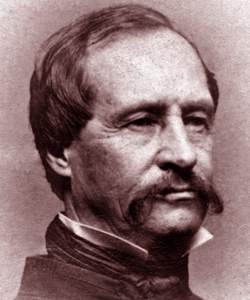David Hunter (American National Biography)
Scholarship
In 1860 Hunter furthered his career through deft manipulation of the newly elected president Abraham Lincoln. From Fort Leavenworth, Kansas, Hunter began a correspondence with Lincoln. His ploy resulted in an invitation from the president to travel aboard the inaugural train from Illinois to the nation's capital. Soon after the Civil War began, Hunter wrangled command of a division even though he was only a colonel in the regular army, having been promoted in May 1861. He participated in the 1861 First Bull Run (First Manassas) campaign, but he was wounded early in the battle…Lincoln elevated Hunter to major general of volunteers. Later that year Lincoln persuaded him to serve under General John C. Frémont in a perilous situation in the Mississippi River basin…Lincoln relieved Frémont of command in part because of Frémont's attempt to liberate the slaves within his command's span of control. When Hunter was dispatched in March 1862 to the Department of the South, a position of relative obscurity on Union-held islands along the South Carolina coast, he repeated Frémont's political gaffe. On 9 May 1862 he decreed that all slaves inside his lines were "free for ever." Lincoln and Secretary of War Edwin Stanton reacted immediately, revoking Hunter's order. Forced to make his policy absolutely clear, Lincoln stated, "No commanding general shall do such a thing, upon my responsibility, without consulting me." Despite Hunter's faulty assumption of authority, Lincoln still regarded the general as a friend.
Rod Paschall, "Hunter, David," American National Biography Online, February 2000, http://www.anb.org/articles/05/05-00369.html.







